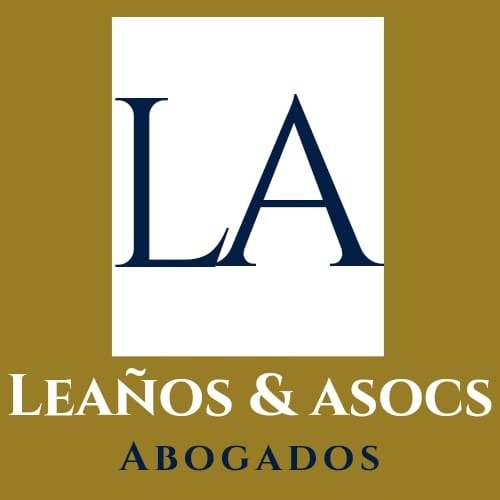Best Bankruptcy Lawyers in Bolivia
Share your needs with us, get contacted by law firms.
Free. Takes 2 min.
Or refine your search by selecting a city:
List of the best lawyers in Bolivia
About Bankruptcy Law in Bolivia
Bankruptcy law in Bolivia is designed to provide a structured process for individuals and businesses that are unable to meet their financial obligations. Known as "Concurso Preventivo y Quiebras," the legal framework aims to balance the interests of debtors and creditors while promoting financial stability. This legal procedure offers opportunities for restructuring debt, negotiating payment plans, or liquidating assets to satisfy obligations.
Why You May Need a Lawyer
Seeking legal assistance during bankruptcy proceedings is crucial due to the complexity of the process and the significant stakes involved. Common situations where legal help may be required include:
- Assessing eligibility for bankruptcy and determining the most appropriate type of proceeding.
- Filing necessary legal documents correctly and within deadlines.
- Negotiating with creditors to achieve favorable terms.
- Protecting assets from liquidation.
- Understanding the implications of bankruptcy on personal and business finances.
- Representing interests in court proceedings.
Local Laws Overview
The bankruptcy process in Bolivia is governed by the "Ley de Concursos y Quiebras." Key aspects include:
- Voluntary and Involuntary Proceedings: Debtors can initiate the process voluntarily, but creditors may also force bankruptcy if obligations are unmet.
- Automatic Stay: An automatic suspension of all debt collection efforts is triggered once bankruptcy is filed, allowing time to formulate a resolution plan.
- Restructuring and Liquidation: Debtors can seek to restructure their debt through a negotiated plan or proceed to asset liquidation if restructuring is impractical.
- Creditors' Meetings: Meetings are convened to discuss and approve the debtor's proposed repayment plan or liquidation strategy.
- Discharge of Debts: Successful bankruptcy can lead to the discharge of most debts, freeing the debtor from personal liability.
Frequently Asked Questions
What is the primary law governing bankruptcy in Bolivia?
Bankruptcy is primarily governed by the "Ley de Concursos y Quiebras," which outlines procedures for both individuals and businesses.
Is bankruptcy available to both businesses and individuals?
Yes, bankruptcy proceedings in Bolivia are available to both businesses and individuals facing insolvency situations.
What happens to my assets during a bankruptcy proceeding?
In liquidation scenarios, assets may be sold to repay creditors. In restructuring, assets may be protected under a negotiated payment plan.
Can I keep any assets after declaring bankruptcy?
Certain essential assets may be exempt from liquidation, but this depends on individual circumstances and the court's discretion.
How long does the bankruptcy process typically take?
The duration varies based on the complexity of the case, ranging from a few months for straightforward liquidations to several years for complex restructurings.
Will bankruptcy discharge all of my debts?
Most unsecured debts may be discharged; however, certain debts like tax obligations and family support typically survive the process.
What is an automatic stay, and how does it affect me?
An automatic stay halts all collection actions against the debtor, providing temporary relief while the bankruptcy case is assessed.
Do I have to appear in court?
While court appearances may be necessary, a lawyer can often represent you, minimizing your direct involvement.
Can I file for bankruptcy again in the future?
Yes, although there are time limits and restrictions on seeking subsequent bankruptcies, depending on the circumstances of prior filings.
How can I find a qualified bankruptcy lawyer in Bolivia?
You can seek recommendations from legal associations, consult local bar directories, or search online for specialized bankruptcy attorneys.
Additional Resources
For further support and information, consider consulting:
- Ministerio de Justicia y Transparencia Institucional: Provides guidance and resources related to legal procedures in Bolivia.
- Defensoría del Pueblo: Offers assistance in accessing legal rights and resources.
- Bolivian Bar Association: Can assist in finding certified and trustworthy legal practitioners.
Next Steps
If you need legal assistance in bankruptcy, consider the following steps:
- Conduct a thorough assessment of your financial situation and gather all relevant documents, including debts, assets, and income statements.
- Seek a preliminary consultation with a specialized bankruptcy lawyer to understand your options and legal standing.
- Decide on the type of bankruptcy proceeding that best aligns with your circumstances in consultation with your lawyer.
- Follow legal advice on preparing and submitting the requisite documents to initiate the bankruptcy process.
- Engage actively in meetings and negotiations with creditors, as advised by your legal counsel.
- Stay informed about legal obligations and rights throughout the process to ensure compliance and protect your interests.
Lawzana helps you find the best lawyers and law firms in Bolivia through a curated and pre-screened list of qualified legal professionals. Our platform offers rankings and detailed profiles of attorneys and law firms, allowing you to compare based on practice areas, including Bankruptcy, experience, and client feedback.
Each profile includes a description of the firm's areas of practice, client reviews, team members and partners, year of establishment, spoken languages, office locations, contact information, social media presence, and any published articles or resources. Most firms on our platform speak English and are experienced in both local and international legal matters.
Get a quote from top-rated law firms in Bolivia — quickly, securely, and without unnecessary hassle.
Disclaimer:
The information provided on this page is for general informational purposes only and does not constitute legal advice. While we strive to ensure the accuracy and relevance of the content, legal information may change over time, and interpretations of the law can vary. You should always consult with a qualified legal professional for advice specific to your situation.
We disclaim all liability for actions taken or not taken based on the content of this page. If you believe any information is incorrect or outdated, please contact us, and we will review and update it where appropriate.
Browse bankruptcy law firms by city in Bolivia
Refine your search by selecting a city.








